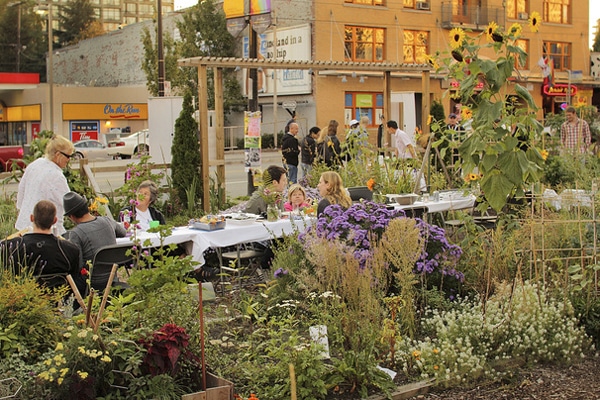What is this issue about?
Food security at the community level is when all citizens obtain a safe, personally acceptable, nutritious diet through a sustainable food system1 that maximizes healthy choices, community self-reliance, and equal access for everyone. Food security is vital to the health and well-being of a communityi and is the foundation for healthy eating.

Download the Healthy Eating & Food Security Action Guide here.
Why is this important for health, well-being and healthy communities?
We know that eating enough servings of vegetables and fruit is critical to good health; however, only 41% of British Columbians eat at least five servings of fruits and vegetables per day.ii There is evidence to show that even a one-serving-per-day increase is linked to a 20% reduction in chronic disease related mortality.iii
Food security and healthy eating are important to communities for a variety of reasons:
- Increasing access to healthy food corresponds to the likelihood of healthier eating, healthier weights, and reduced rates of diabetes.iv
- Community members need healthy foods to be readily available and affordable, as well as the skills and knowledge to make sound food choices.
- Support for local food production may increase the availability of healthy and fresh food, including fruits and vegetables, in communities while supporting local economies.
- The food environment in communities affects the availability and accessibility of healthy food. For example, some communities have restricted access to healthy foods due to geographic transportation barriers. Others have increased availability of non-nutritious foods such as fast food outlets, convenience stores, and exposure to unhealthy food marketing.
Credit: Picture BC
Why does healthy eating and food security matter for B.C. local governments?
Many B.C. local governments are already leaders in supporting healthy eating and food security, and have integrated actions into their community plans, policies, programs, and partnerships.
With local government support, communities can identify opportunities to increase access to healthy food, create healthy eating environments, build food security, and support local food systems. This may include activities such as adopting and implementing healthy food guidelines, creating spaces for community and school gardens, and encouraging and providing incentives for food outlets that make nutritious foods readily available, such as farmers’ markets and grocery stores.





